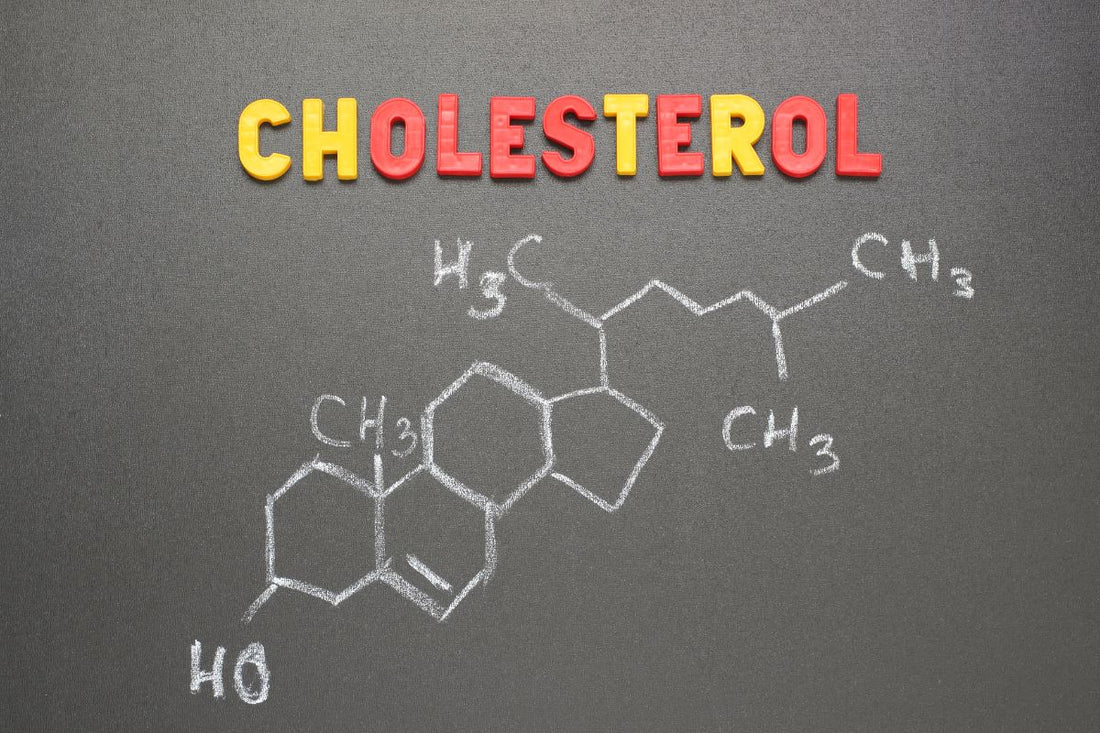Does restricting carbohydrates raise LDL cholesterol?
Hello! I'm the owner of Fusubon!
I think there are many people who are practicing carbohydrate restriction and have lowered their triglyceride levels, but are still troubled by high LDL cholesterol .
In fact, some of Fusubon's customers have expressed concerns like this.
This is just my personal opinion, but I think that most people who practice carbohydrate restriction have elevated LDL cholesterol levels to some degree.
In this article, we will explain whether high LDL cholesterol is dangerous and how to lower your LDL cholesterol levels.
What is LDL?

Cholesterol is required by all cells, but is only produced in a few places: the liver, skin, small intestine, testes, and adrenal glands.
The liver accounts for about half of its production.
LDL is an abbreviation for Low Density Lipoprotein, which in Japanese is called "low-density lipoprotein."
LDL is not cholesterol itself, but a vessel that carries cholesterol. LDL plays an important role in transporting cholesterol, a raw material for cell membranes, from the liver to peripheral tissues.
Is high LDL cholesterol dangerous?

Even if your LDL cholesterol is high, it is not a problem as long as your triglycerides are below 60 mg/dl and your HDL cholesterol is above 60 mg/dl.
<Reference> Dr. Ebe's Diabetes Musings Diary: LDL Cholesterol, HDL Cholesterol, Triglycerides. Good. Bad. Quoted from
First of all, LDL is not cholesterol itself, but a train that transports cholesterol.
As Dr. Ebe states in his article, it is wrong to define all LDL cholesterol as bad.
It is not the case that LDL = bad and HDL = good, but rather that some LDL cholesterol has the potential to be bad (dangerous).
The danger is small LDL cholesterol

The most dangerous type of LDL cholesterol is small LDL, which has a low density .
Because they are small, they can easily penetrate the inner walls of blood vessels, become oxidized, and are easily converted into oxidized LDL cholesterol .
Oxidized LDL cholesterol is taken up by macrophages, which are immune cells, and then the dead bodies accumulate on the inner walls of blood vessels , promoting arteriosclerosis .
Therefore, even if your total cholesterol level is not that high, having a lot of small LDL can lead to arteriosclerosis . Small LDL is often found in people with low HDL cholesterol .
If triglycerides are below 60 mg/dl and HDL cholesterol is above 60 mg/dl, there is no small particle LDL cholesterol.
Even if your LDL cholesterol level is high, it is still normal-sized LDL cholesterol and can be considered good.Quoted from Dr. Ebe's Diabetes Musings: LDL Cholesterol, HDL Cholesterol, and Triglycerides. Good. Bad.
RLP (remnant-like lipoprotein) cholesterol is also dangerous!

Remnant-like lipoprotein (RLP) cholesterol is also very dangerous.
RLP (remnant-like lipoprotein) cholesterol is the residual material produced when lipoproteins (complexes in which neutral fats and cholesterol are bound to proteins) in the blood are broken down.
Macrophages, a type of white blood cell, ingest it as a foreign body and deposit it in the walls of blood vessels, promoting arteriosclerosis . Like small LDL , it is common in people with high levels of neutral fat and low levels of good HLD cholesterol , and this tendency is more prevalent in people with diabetes.
NHK Tameshite Gatten: New Common Knowledge about Cholesterol Special: Here's What You Should Be Most Aware of!
How to lower LDL cholesterol while restricting carbohydrate intake
What can we do to lower remnant, or bad, cholesterol, which is harmful to blood vessels?
Fish oil is a powerful ally.

Recent research has shown that EPA (unsaturated fatty acid), which is particularly abundant in oily fish, not only thins the blood but also helps suppress the increase of remnant cholesterol.

In addition, in the world of orthomolecular (nutritional therapy), there have been cases reported where LDL cholesterol can be lowered by taking niacin, a type of vitamin B3.
Niacin is a safer and more effective antihyperlipidemic agent than any other antihyperlipidemic agent (niacinamide has no such effect).
By administering niacin, blood cholesterol levels will go down in those with high cholesterol and go up in those with low cholesterol, eventually converging to 180.
Niacin lowers triglycerides, lowers LDL cholesterol, and raises HDL cholesterol. Administration of 2g of niacin lowers triglycerides and LDL cholesterol by 50%, and increases HDL cholesterol by 35%.
<Reference> Psychiatrist Honorary Director Kotetsu's blog Summary of nutrients, 1. Niacin
Get blood tests frequently!

In any case, checking your own numbers and learning more detailed information about your cholesterol will lead to appropriate measures.
The international standard for LDL is set at below 190 , while in Japan the standard is often set at below 139, which means that the Japanese standard is a little too strict.
As mentioned above , while restricting carbohydrates, it is important to keep an eye on the three numbers of triglycerides, LDL cholesterol, and HDL cholesterol .
In addition, RLP cholesterol can be measured, so if you are concerned, we recommend getting a blood test to check it and making efforts to improve your lifestyle habits.
see you!





